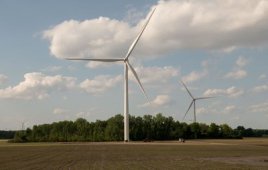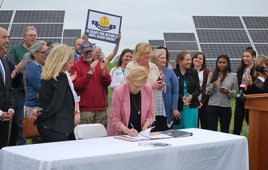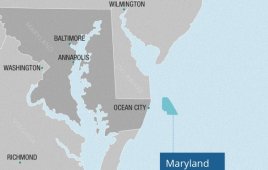The Department of Energy’s advanced research group has selected the National Rural Electric Cooperative Association to develop breakthrough data repositories and open-access models of the electric grid—foundational tools that are needed to modernize the country’s electric infrastructure.
The National Rural Electric Cooperative Association will collaborate with Pacific Northwest National Laboratory, which is leading two of seven projects receiving a total of $11M from DOE’s Advanced Research Projects Agency-Energy (ARPA-E). The agency announced the awards on Friday. A day earlier, DOE announced grants of $220M for grid modernization projects that seek to improve “resiliency, reliability and security.”
“The project will be built on top of the Open Modeling Framework,” said David Pinney, analytics program manager in NRECA’s Business and Technology Strategies department. “One of the things that ARPA-E and the project partners liked about that software was the way the co-ops had brought a collaborative, online approach to the issues of dynamic powerflow and cost-benefit analysis for emerging technology.”
At present, existing data sets aren’t good enough to test new tools developed to improve the grid. The data sets are outdated, static or too small. They don’t accurately represent the distributed energy resources, smart devices and commu nications capacity of a complex, interconnected modern grid. To solve that problem, DOE has created the Generating Realistic Information for the Development of Distribution and Transmission Algorithms (GRID DATA) program.
nications capacity of a complex, interconnected modern grid. To solve that problem, DOE has created the Generating Realistic Information for the Development of Distribution and Transmission Algorithms (GRID DATA) program.
NRECA and PNNL will research and build a pair of advanced tools:
- a Sustainable Data Evolution Technology (SDET) for power grid optimization will create open-access power grid datasets that can be updated by the grid community.
- a Data Repository for Power system Open models With Evolving Resources (DR POWER), an online, community-centered tool that supports large-scale, realistic datasets and data tooling.
Working with NRECA and other research partners, ARPA-E seeks to attain “transformational” technological breakthroughs in the energy sector, much the way the agency on which it was modeled, the Defense Department’s advanced research projects agency (DARPA), developed game-changing technologies, including the Internet, automated voice recognition and miniaturized GPS receivers.
The NRECA is the national service organization that represents the nation’s more than 900 private, not-for-profit, consumer-owned electric cooperatives, which provide service to 42 million people in 47 states.
National Rural Electric Cooperative Association
nreca.coop
Filed Under: Uncategorized




